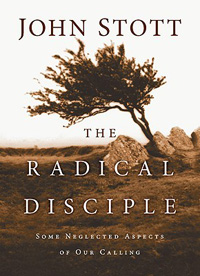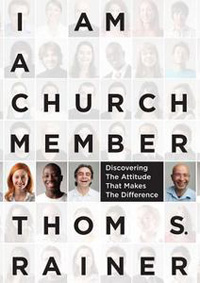Life: A Birth Like No Other
• The Bible Studies for Life lesson for March 8 focuses on Luke 1:26-35.
Several years ago, I stood beside a hospital bed, visiting a friend who had just delivered a stillborn child. Just a few months earlier, her husband had died from an overdose of an over-the-counter pain reliever taken to ease a toothache.
They did not have enough money for him to go to the dentist, and he took too many pain relievers in his attempt to ease the pain. My friend had no husband, no job, two older children to provide for, and she had just lost her baby. Crying, she looked at me and said, “I’ve been through just about the worst that any woman can go through.”
Usually, when a husband and wife discover they are having a baby, their excitement hardly can be contained. They call their family members and friends; they post ultrasound images on Facebook. The months of anticipation culminate in the birth of a beautiful, cherished child. This usually is the case, but not always. A husband and wife’s vision of what their lives will be like as parents can change in a heartbreaking instant.
A troubling visit
Likely the last thing on Mary’s mind when the angel Gabriel visited her was that she would become pregnant before she even married Joseph. Instead, I can imagine this teenaged girl going about her daily chores, daydreaming about her betrothed and their future marriage. Then, the appearance of a heavenly being abruptly interrupts her thoughts. The angel says: “’Greetings, you who are highly favored! The Lord is with you’” (v. 28).
The angel either frightened or startled Mary, because she was “greatly troubled” at his salutation and “wondered what kind of greeting this might be” (v. 29). Gabriel told Mary not to be afraid. She had “’found favor with God’” (v. 30). In this context, finding favor with God does not mean Mary earned God’s approval because she was such a good, religious girl. Instead, the favor God gave Mary was his unmerited grace. God, in his sovereignty, chose Mary to be the mother of Jesus not because she deserved it, but because it was part of his mysterious plan.
A birth like no other
The angel’s confusing message gets even stranger. He says to Mary: “’You will conceive and give birth to a son, and you are to call him Jesus. He will be great and will be called the Son of the Most High. The Lord God will give him the throne of his father David, and he will reign over Jacob’s descendants forever; his kingdom will never end’” (vv. 29-34). Mary seems, at least for a moment, to ignore the angel’s incredible assertion that her baby would be the Son of God and king of an eternal kingdom. Instead, she understandably questions how she will be pregnant without having sex with a man: “’How will this be … since I am a virgin?’”(v. 34).
The angel helps Mary understand her miraculous pregnancy by telling her that her relative, Elizabeth, already is six months pregnant. Elizabeth and her husband, Zechariah, were unable to conceive a child until God intervened. Their baby, John, would be the prophet would “’make ready a people prepared for the Lord’” (v. 17). However, Mary’s pregnancy would be quite different from Elizabeth’s. The father of Mary’s baby was God himself. John, having two human parents, was fully human.
Jesus, born of Mary and conceived by the Holy Spirit, was both fully God and fully human. I have heard many Christians try to explain the identity of Jesus by claiming he was “half and half.” That is not true. As God incarnate—inhabiting human flesh—Jesus was both 100 percent human and 100 percent God. This may not add up in our human reasoning, but it is true.
The faith of a servant
Mary did not understand everything that would happen to her. She might even have thought Joseph would break off their engagement due to her pregnancy, and she would be the subject of scorn or worse. Certainly, she could not imagine the joy she and Joseph would share as they reared the boy Jesus or the unspeakable sorrow she would bear as she watched him die as a young man. Yet, she told the angel she was God’s servant. She wanted God to fulfill his purpose through her.
Like Mary, anyone who is a follower of Christ is the recipient of God’s favor—his grace. We might decide God cannot use us because we are too young or not important enough. We might think God cannot use us because we have fallen into the trap of thinking our actions secure our salvation or that God will bless us only if we are really, really good. We obey God because we love him, not to earn our way to salvation. His grace is offered freely to us through Jesus, the God/Man who is our Savior and King.
 Andrews is a natural-born story-teller and a nonstop talker. He combined both traits in this book, which includes at least 248 stories. Many of them first appeared in his “Thinking Out Loud” column, which he launched during his long career as editor of the Daily Herald in Plainview and continues in the Footprints magazine at Wayland Baptist University, where he has been the alumni director eight years.
Andrews is a natural-born story-teller and a nonstop talker. He combined both traits in this book, which includes at least 248 stories. Many of them first appeared in his “Thinking Out Loud” column, which he launched during his long career as editor of the Daily Herald in Plainview and continues in the Footprints magazine at Wayland Baptist University, where he has been the alumni director eight years. Apart from Billy Graham, few individuals influenced the global evangelical movement in the latter half of the 20th century as much as John Stott. Stott, who served 30 years at All Souls Church in London and was a principal author of the Lausanne Covenant in 1974, died in 2011 at age 90 after writing more than 50 books. The Radical Disciple provides what he called his “valedictory message.” Rather than leaving behind a hefty theological magnum opus as his final contribution, he gave his readers a succinct distillation of what he learned and taught during more than 60 years in ministry.
Apart from Billy Graham, few individuals influenced the global evangelical movement in the latter half of the 20th century as much as John Stott. Stott, who served 30 years at All Souls Church in London and was a principal author of the Lausanne Covenant in 1974, died in 2011 at age 90 after writing more than 50 books. The Radical Disciple provides what he called his “valedictory message.” Rather than leaving behind a hefty theological magnum opus as his final contribution, he gave his readers a succinct distillation of what he learned and taught during more than 60 years in ministry. This easy-to-read book by Thom Rainer, president of Lifeway Christian Resources, grew out of an article he posted on his blog.
This easy-to-read book by Thom Rainer, president of Lifeway Christian Resources, grew out of an article he posted on his blog.  A blurb on the back cover of Randy Frazee’s newest book—a companion to his earlier book, Believe—confronts Christians with the compelling rhetorical question: “Are you living the story?”
A blurb on the back cover of Randy Frazee’s newest book—a companion to his earlier book, Believe—confronts Christians with the compelling rhetorical question: “Are you living the story?” The latest intriguing installment in Candace Jane Mann’s Parker Valley Series takes readers to a world of glamour and glitz as the main character, Claira, pursues her childhood dream of becoming a fashion designer. Like the other titles in the series—Sondra and Jennifer—Claira includes profound messages on themes such as surrender, forgiveness, faith, the importance of prayer and marriage as covenant.
The latest intriguing installment in Candace Jane Mann’s Parker Valley Series takes readers to a world of glamour and glitz as the main character, Claira, pursues her childhood dream of becoming a fashion designer. Like the other titles in the series—Sondra and Jennifer—Claira includes profound messages on themes such as surrender, forgiveness, faith, the importance of prayer and marriage as covenant.